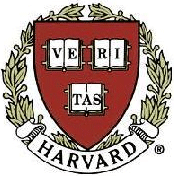Monday, March 16. 2009
 Many thanks to Amy Brand, Program Manager of the Harvard University Library Office for Scientific Communication (OSC), for forwarding this press release announcing the adoption of Harvard's 3rd Green OA Mandate, this time by the John F. Kennedy School of Government.
And yet another well-deserved round of congratulations to Stuart Shieber, Faculty Director of the OSC and the architect of this remarkable (and seemingly unending) series of Green OA mandates from Harvard! (Harvard Medical School looks like it will be next!)
One can only echo what is stated at the end of the press release, which is that although this is the world's 69th Green OA self-archiving mandate, "none are... as far-reaching as the one put forth at Harvard"! (Nor, I might add, is there now any better model for emulation worldwide.) Many thanks to Amy Brand, Program Manager of the Harvard University Library Office for Scientific Communication (OSC), for forwarding this press release announcing the adoption of Harvard's 3rd Green OA Mandate, this time by the John F. Kennedy School of Government.
And yet another well-deserved round of congratulations to Stuart Shieber, Faculty Director of the OSC and the architect of this remarkable (and seemingly unending) series of Green OA mandates from Harvard! (Harvard Medical School looks like it will be next!)
One can only echo what is stated at the end of the press release, which is that although this is the world's 69th Green OA self-archiving mandate, "none are... as far-reaching as the one put forth at Harvard"! (Nor, I might add, is there now any better model for emulation worldwide.) -- S.H.
For Immediate Release: March 16, 2009
Media Contact: Doug Gavel (617) 495-1115 Harvard Kennedy School Communications
Harvard Kennedy School Faculty Votes for Open Access for Scholarly Articles
CAMBRIDGE, MA – The faculty of the John F. Kennedy School of Government at Harvard University voted overwhelmingly last week to make all faculty members’ scholarly articles publically available online at no charge, providing for the widest possible dissemination of faculty research and scholarship. The historic vote adds Harvard Kennedy School to a growing list of faculties at the university to endorse the initiative.
“The scholarly articles authored by Harvard Kennedy School (HKS) faculty members enhance the understanding of many critical and urgent public policy issues, and by embracing open access we seek to maximize the avenues by which these ideas are shared,” said Kennedy School Dean David T. Ellwood. “In the developing world especially, where access to expensive journals is rare, there is a pressing need for access to the latest policy advice and scholarship coming from HKS faculty.”
Under the new policy, HKS will make articles authored by faculty members available in an open access online repository, the contents of which will be searchable through web tools such as Google Scholar. Authors will maintain the right to distribute articles on their own websites, and educators will have the right to freely provide the articles to students, so long as the materials are not used for profit. Faculty members will have the ability to “opt out” of the requirements of the new policy in the case of specific articles in which the policy proves to be incompatible with the obligations under a particular publisher’s contract.
The vote at HKS follows a proposal by a university-wide committee aimed at encouraging wider dissemination of scholarly work. The Faculty of Arts and Sciences (FAS) and faculty at Harvard Law School (HLS) each voted last year to endorse legislation similar to that approved by the HKS faculty.
Stuart M. Shieber, the James O. Welch Jr. and Virginia B. Welch professor of computer science (FAS) and faculty director of the Office for Scholarly Communication, who introduced the legislation last year said, “I am delighted that the faculty of yet another school at Harvard has chosen to embrace open access and that momentum is spreading on campus. Now that the Office for Scholarly Communication is staffed, the DASH (Digital Access to Scholarship at Harvard) repository is in development, and we have experience working with both the Faculty of Arts and Sciences and the Law School, we look forward to working with the Harvard Kennedy School to implement their faculty’s important decision smoothly and efficiently.”
Although other academic institutions have considered similar open access policies, none are considered as far-reaching as the one put forth at Harvard.
|
 Many thanks to Amy Brand, Program Manager of the Harvard University Library
Many thanks to Amy Brand, Program Manager of the Harvard University Library 

